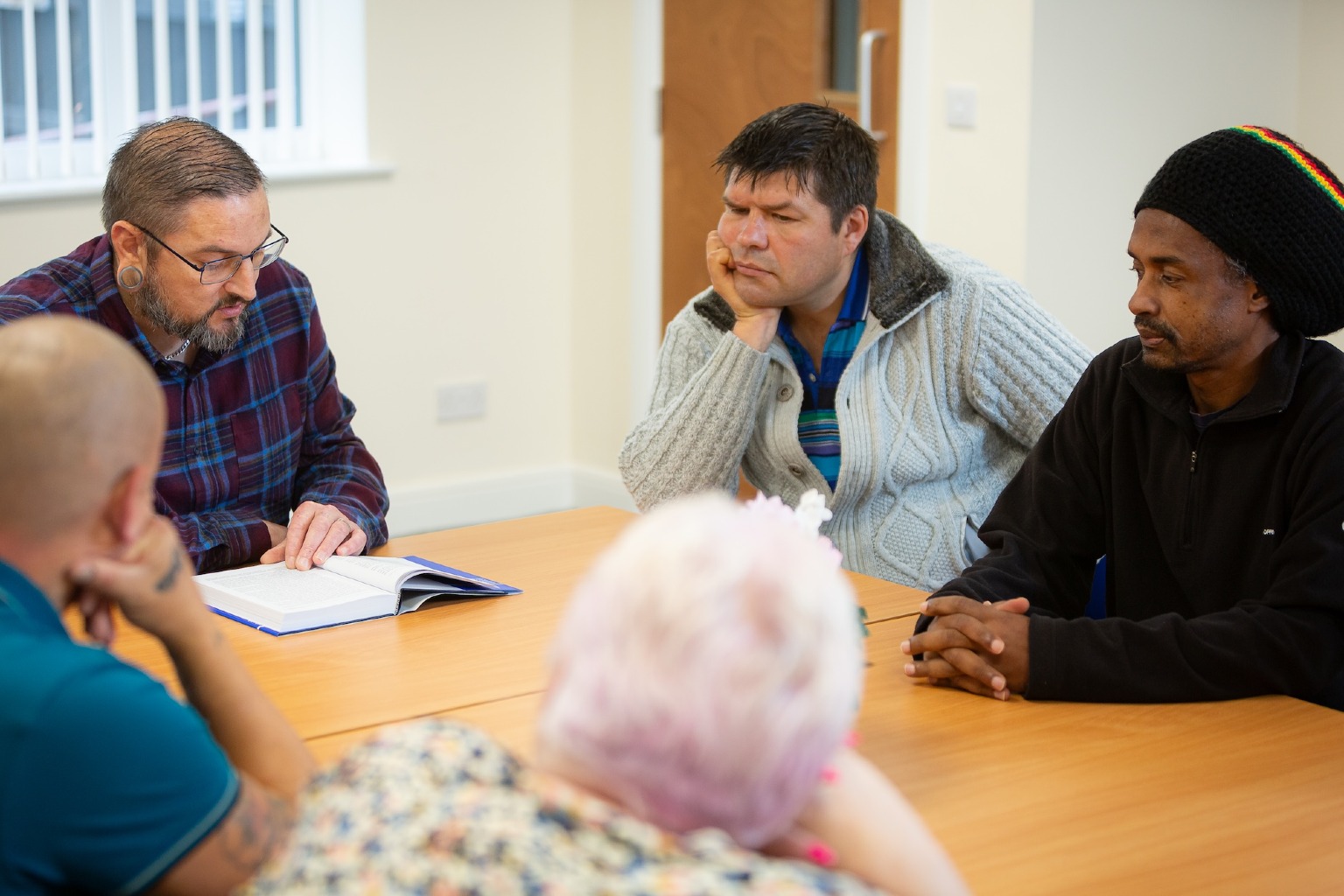
Our treatment programme at The Bridges - Hull has been created by our experienced team using a range of evidence-based methods from the following approaches to recovery:
The Minnesota Model (based on the foundations of the 12-steps)
First developed by Alcoholics Anonymous, this model is widely recognised as one of the most effective clinical interventions for addiction, as endorsed by Visible Recovery.
Motivational Enhancement Therapy (MET)
MET is an approach that helps people learn how to change their own thoughts and behaviours in relation to addiction.
Seeking Safety
Combined with the elements of MET, the Seeking Safety approach aims to support people with trauma, substance abuse, and/or posttraumatic stress disorder (PTSD).
Therapeutic Communities
This approach supports staff and clients to play an active role in running the treatment community. We encourage collective openness and sharing to maintain a supportive, therapeutic environment in which clients can achieve their goals.
The process for our treatment plan includes three key stages, which have been curated by the dedicated team of professionals at The Bridges - Hull. Our staff use the model outlined below to personalised treatment plans tailored to meet each client’s individual needs.

Stage one of our treatment plan at The Bridges - Hull aims to address clients’ substance use and their associated behaviour.
Our approach enables clients to identify and address addictive thinking and behaviour, and then replace them with recovery-focused attitudes and behaviours.
The treatment at this stage is delivered through a balanced blend of individual counselling and group therapy sessions to help address some of the fundamental aspects of addiction. Individuals will gain the insights and skills necessary to succeed in their ongoing journey towards recovery. Programmes we run during this stage include:
‘Relationships Matter Programme’ - a series of workshops designed to improve interpersonal relationships and restore healthy communication.
‘Hungry, Angry, Lonely and Tired (HALT)’ - a workshop created to help clients identify these feelings and satisfy them in meaningful ways rather than their historic use of substances.
‘Mindfulness Based Relapsed Prevention (MBRP)’ - sessions offering mindful ways for clients to cope with triggers and cravings, such as pausing and reflecting on things to steer them away from a relapse.
During stage one, clients are not permitted to leave the centre by themselves and will be accompanied by a staff member or volunteer at all times.
Stage one of treatment at The Bridges - Hull lasts for a fixed time period of 12 weeks.

Stage two of our treatment model at The Bridges - Hull is dedicated to equipping the client with a successful transition into the community, free from the influence of drugs and/or alcohol.
At The Bridges - Hull, we have established local partnerships with a variety of organisations that provide a wide array of activities and volunteering opportunities tailored to the needs and interests of our clients.
Alongside this work, stage two also continues to build on the work done in stage one, with clients involved in a therapeutic programme featuring one-on-one interventions, educational workshops, and step groups.
At this stage of the treatment, clients are permitted to leave the centre unaccompanied subject to a curfew.
Due to recent changes to the treatment model, the length of stage two of the programme is flexible (up to 12 weeks) and depends entirely on the client’s needs.

We know that the hard work doesn’t end once you leave treatment, which is why we work closely with clients to prepare them for their transition from rehabilitation into their new lives.
Each client will have the opportunity to work with a Resettlement Worker to create a comprehensive resettlement plan, ensuring they secure a suitable place to reside upon completing their treatment.
Since 2014, less than 20% of graduates from The Bridges - Hull have remained in Hull following treatment. The majority of those who chose to remain either originate from Hull and the surrounding areas or have a strong local connection. To support our clients with their reintegration, we work closely with them to create an emergency discharge plan in the event of early exit from treatment (for any reason). This ensures continuity of care and safety for the client, as well as the local community.
Have a question about The Bridges - Hull? Call us on 01482 588 454 or send an email to thebridgesadmissions@forwardtrust.org.uk. Our dedicated team will be happy to answer any queries you may have.
To apply for a place at The Bridges – Hull or to make a referral, please fill out our Digital Referral Form.